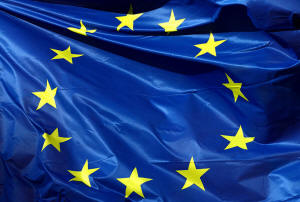Europe sets benchmark for rest of the world with landmark AI laws
 Send a link to a friend
Send a link to a friend
 [May 22, 2024]
By Foo Yun Chee and Tassilo Hummel [May 22, 2024]
By Foo Yun Chee and Tassilo Hummel
BRUSSELS (Reuters) -Europe's landmark rules on artificial intelligence
will enter into force next month after EU countries endorsed on Tuesday
a political deal reached in December, setting a potential global
benchmark for a technology used in business and everyday life.
The European Union's AI Act is more comprehensive than the United
States' light-touch voluntary compliance approach while China's approach
aims to maintain social stability and state control.
The vote by EU countries came two months after EU lawmakers backed the
AI legislation drafted by the European Commission in 2021 after making a
number of key changes.
Concerns about AI contributing to misinformation, fake news and
copyrighted material have intensified globally in recent months amid the
growing popularity of generative AI systems such as Microsoft-backed
OpenAI's ChatGPT, and Google's chatbot Gemini.
"This landmark law, the first of its kind in the world, addresses a
global technological challenge that also creates opportunities for our
societies and economies," Belgian digitization minister Mathieu Michel
said in a statement.

"With the AI Act, Europe emphasizes the importance of trust,
transparency and accountability when dealing with new technologies while
at the same time ensuring this fast-changing technology can flourish and
boost European innovation," he said.
The AI Act imposes strict transparency obligations on high-risk AI
systems while such requirements for general-purpose AI models will be
lighter.
It restricts governments' use of real-time biometric surveillance in
public spaces to cases of certain crimes, prevention of terrorist
attacks and searches for people suspected of the most serious crimes.
[to top of second column]
|

A European Union flag flutters outside the EU Commission
headquarters, in Brussels, Belgium, February 1, 2023 REUTERS/Yves
Herman/File Photo

The new legislation will have an impact beyond the 27-country bloc,
said Patrick van Eecke at law firm Cooley.
"The Act will have global reach. Companies outside the EU who use EU
customer data in their AI platforms will need to comply. Other
countries and regions are likely to use the AI Act as a blueprint,
just as they did with the GDPR," he said, referring to EU privacy
rules.
While the new legislation will apply in 2026, bans on the use of
artificial intelligence in social scoring, predictive policing and
untargeted scraping of facial images from the internet or CCTV
footage will kick in in six months once the new regulation enters
into force.
Obligations for general purpose AI models will apply after 12 months
and rules for AI systems embedded into regulated products in 36
months.
Fines for violations range from 7.5 million euros ($8.2 million) or
1.5% of turnover to 35 million euros or 7% of global turnover
depending on the type of violations.
($1 = 0.9199 euros)
(Reporting by Foo Yun Chee, editing by Tassilo Hummel and Emelia
Sithole-Matarise)
[© 2024 Thomson Reuters. All rights reserved.]This material
may not be published, broadcast, rewritten or redistributed.
Thompson Reuters is solely responsible for this content.
 |